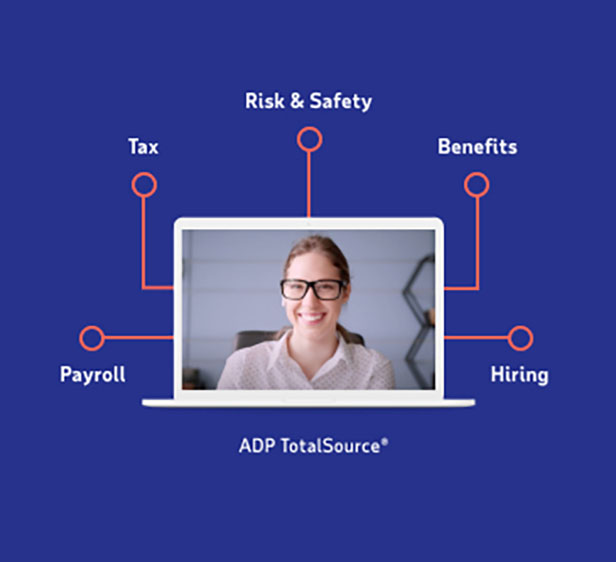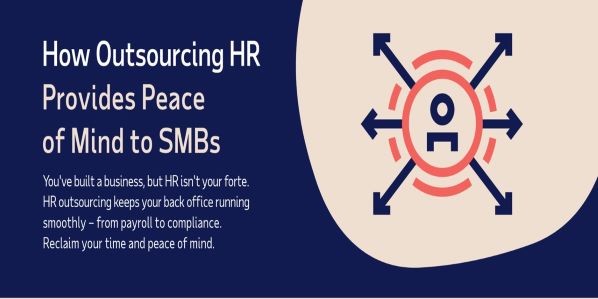Employers that expand internationally must contend with differing labor laws in the countries where they employ people. Knowing the ins and outs of these potentially complex regulations is time consuming and mistakes can be costly. To help free up valuable resources and avoid compliance violations, employers may seek third-party assistance from an employer of record who specializes in payroll, benefits, HR and more.
Table of Contents
What is an employer of record?
An employer of record is a third-party provider that is legally responsible for another organization’s employees. It can be located within the same country as the business it employs workers for or in another country with different employment laws.
The EOR handles employment administration, such as payroll and regulatory compliance, while the client business maintains managerial control of its employees and their work assignments. This arrangement allows employers to expand their operations without being overburdened by the administrative and risk management tasks that may arise when entering a new geographic region.
What does an employer of record do?
An employer of record may assume responsibility for any of the following tasks:
- Running payroll and paying employees
- Filing and paying employment-related taxes
- Administering benefits
- Managing workers’ compensation claims
- Managing unemployment claims
- Supporting regulatory compliance
Transferring these responsibilities to an EOR does not mean an employer has no say in employee affairs – quite the contrary. Employers are still in charge of day-to-day operations, work assignments, and employee performance and development.
When to use an employer of record service
Employers of record are particularly helpful on the international stage. Employers may rely on the expertise of an EOR if they:
- Expand domestic operations to a foreign location
- Merge with or acquire another company across international borders
- Employ people who are working remotely in other countries
- Have a global workforce or conduct business in multiple countries
- Need help managing payroll, benefits, workers’ compensation, etc.
Employer of record benefits
Hiring employees abroad or opening new locations in foreign countries can be challenging. Employers must often ask themselves, “Is the risk worth the reward?” With the aid of an employer of record, the answer may be yes. An EOR can help employers achieve the following:
- Expand into new markets
Due to red tape, registering a business in another country may take considerable time. An EOR that is already registered in the destination country can hire and onboard employees on the client’s behalf so work can begin faster than if the client attempted to register independently. - Minimize risks
Employers of record often have in-depth knowledge of local regulations, so their clients don’t have to understand the full scope of the laws themselves. And if a compliance violation occurs, the EOR is generally liable, not the client. - Alleviate administrative burdens
The administrative duties associated with having employees, such as processing payroll and filing taxes, require resources that could be better served elsewhere. By handing these tasks off to an EOR, employers can spend time on more impactful initiatives, like client relations, product enhancements, growth strategies, etc. - Cut expenses
Eliminating red tape, reducing compliance risk and outsourcing labor-intensive tasks may ultimately lead to financial savings. In many cases, the expense of an EOR is less than the cost of setting up an entity in a foreign country and independently managing onboarding, workplace compliance, payroll and taxes.
EOR vs. PEO: How does an EOR differ from a PEO?
Businesses that need help managing people will sometimes outsource HR to a professional employer organization (PEO). Like an EOR, a PEO can help with payroll and tax processing, benefits administration, hiring and onboarding, regulatory compliance, HR, risk management and more.
Yet, there are some differences between the two:
| Capabilities | PEO | EOR |
| Risk Management | PEOs are co-employers and share certain responsibilities with their clients.* | EORs are the legal employers of the workforce and assume full liability. |
| Service Coverage | Businesses with US domestic operations may benefit from partnering with a PEO.** | EORs specialize in helping businesses that are expanding rapidly or operating globally. |
| Benefits | Employers may have more flexibility and choice with the benefits a PEO provides to their employees. | Employers typically do not have any say in the benefits offered through an EOR. |
* As generally stated in the parties’ services agreement or required by law or regulation.
**Some PEOs may have international travel and expatriation limitations.
Potential drawbacks to an EOR
Robust benefits can be a powerful tool for attracting and retaining talent. Organizations that contract with an EOR may not be able to leverage this competitive advantage to the extent they could with a PEO. They typically are limited to whatever benefits the EOR provides, whereas a PEO may have options and will consult with employers about how to fit their employees’ needs best.
EOR vs staffing agencies
Companies might work with a staffing agency if they want to augment their workforce, acquire help for project-based work or source candidates to fill temporary positions. Anyone hired this way is a leased employee, which means the staffing agency is generally responsible for payroll, taxes, benefits, etc. When the assignment is over, the employee returns to the staffing agency.
This arrangement can benefit businesses looking to scale their workforce economically, but it may not work for those who want to lighten the administrative burdens and risks of employment. In such cases, a third-party EOR might make more sense than a staffing agency.
How to choose the right employer of record
When evaluating potential partners, employers may want to look for an EOR that has the following:
- Experience in the regions where the client has employees
- Knowledge of local employment laws and regulations
- A client base that includes other prominent or similar businesses
- Scalable software solutions that easily integrate with existing tools
- Communication methods that fit stakeholder preferences
- Data security protocols to ensure the safety of sensitive information
Frequently asked questions about employers of record
What is an example of an employer of record?
Employers have certain fiscal and legal obligations to their employees. Turning these responsibilities over to a third-party provider may be an example of an employer-of-record partnership, particularly if the organization is undergoing foreign expansion. An EOR usually has a better understanding of international employment regulations and, thus, is better suited than the client business at running payroll, administering benefits, minimizing risk, etc., in different locations.
Is it easier to open an entity in another country or use an EOR?
Depending on local laws, registering a business in a foreign country can take considerable time and may require the expertise of financial, legal and HR advisors. Partnering with an EOR that is already registered in the destination country allows businesses to potentially enter new markets faster and with less overhead costs than if they attempted to register on their own.
How much does an EOR typically cost?
Pricing structures vary, but employers of record generally charge on a per-employee basis. It may be a flat rate or contingent on payroll figures. The number of EOR services required will also influence the total cost.
What are the alternatives to an EOR?
PEOs provide many of the same services as EORs and may be an alternative option for domestic companies. Some PEOs, like ADP TotalSource, have an EOR partner, which enables businesses to expand globally with industry-leading compliance at every step. Employers can quickly, compliantly and cost-effectively employ people across 180+ countries without the need to set up an international subsidiary.
This article is intended to be used as a starting point in analyzing employers of record and is not a comprehensive resource of requirements. It offers practical information concerning the subject matter and is provided with the understanding that ADP is not rendering legal or tax advice or other professional services.




